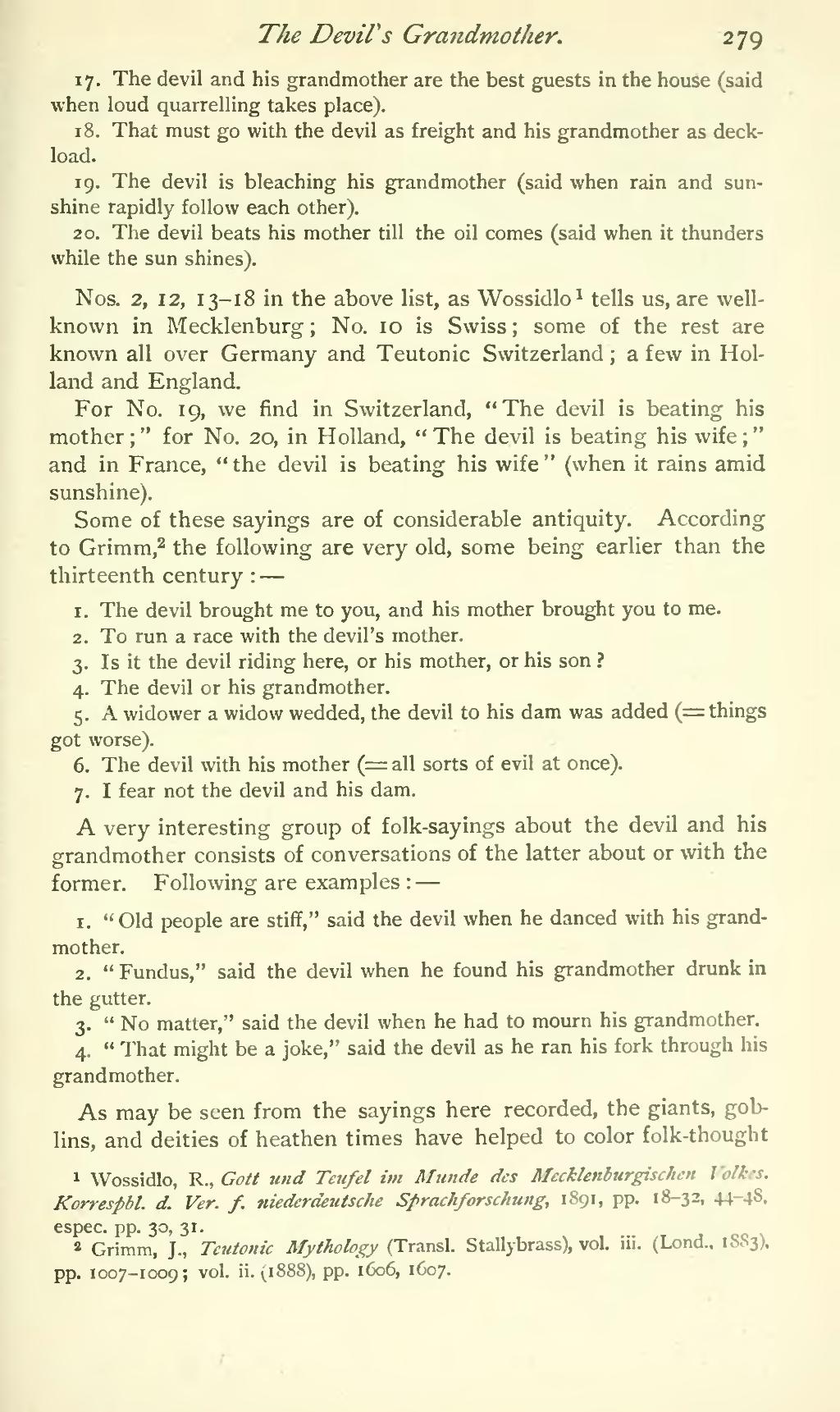The Devil's Grandmother. 279
17. The devil and his grandmother are the best guests in the house (said when loud quarrelling takes place).
18. That must go with the devil as freight and his grandmother as deck- load.
19. The devil is bleaching his grandmother (said when rain and sun- shine rapidly follow each other).
20. The devil beats his mother till the oil comes (said when it thunders while the sun shines).
Nos. 2, 12, 13-18 in the above list, as Wossidlo 1 tells us, are well- known in Mecklenburg ; No. 10 is Swiss ; some of the rest are known all over Germany and Teutonic Switzerland ; a few in Hol- land and England.
For No. 19, we find in Switzerland, "The devil is beating his mother ; " for No. 20, in Holland, " The devil is beating his wife ; " and in France, "the devil is beating his wife" (when it rains amid sunshine).
Some of these sayings are of considerable antiquity. According to Grimm, 2 the following are very old, some being earlier than the thirteenth century : —
1. The devil brought me to you, and his mother brought you to me.
2. To run a race with the devil's mother.
3. Is it the devil riding here, or his mother, or his son ?
4. The devil or his grandmother.
5. A widower a widow wedded, the devil to his dam was added (= things got worse).
6. The devil with his mother (= all sorts of evil at once).
7. I fear not the devil and his dam.
A very interesting group of folk-sayings about the devil and his grandmother consists of conversations of the latter about or with the former. Following are examples : —
1. "Old people are stiff," said the devil when he danced with his grand- mother.
2. " Fundus," said the devil when he found his grandmother drunk in the gutter.
3. " No matter," said the devil when he had to mourn his grandmother.
4. " That might be a joke," said the devil as he ran his fork through his grandmother.
As may be seen from the sayings here recorded, the giants, gob- lins, and deities of heathen times have helped to color folk-thought
1 Wossidlo, R., Cott tind Teufel im Munde des Mecklenburgischcn Volkes. Korrespbl. d. Ver. f. niederdeutsche Sprachforschung, 1891, pp. 18-32. 44~4 S . espec. pp. 30, 31.
2 Grimm, J., Teutonic Mythology (Transl. Stallybrass), vol. iii. (Lond.. 1SS3), pp. 1007-1009; vol. ii. (1888), pp. 1606, 1607.
�� �
